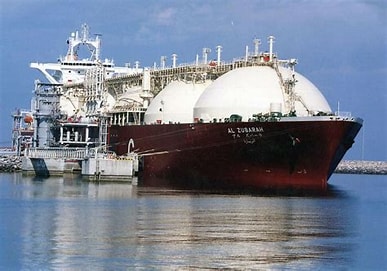In the global energy landscape, the sale and purchase of natural gas and liquefied natural gas (LNG) play a pivotal role in meeting the world’s energy needs. Gas and LNG sales contracts serve as the backbone of this trade, providing a framework for the negotiation, sale, and delivery of these valuable commodities. In this IEMA blog, we explore the critical considerations for both buyers and sellers when entering into gas and LNG sales contracts.
Contract Structure and Terms:
Gas and LNG sales contracts typically involve complex arrangements regarding pricing mechanisms, delivery terms, quantity specifications, and duration. Buyers and sellers must carefully negotiate and agree upon these terms to ensure mutual understanding and alignment of expectations. Common pricing mechanisms include oil-indexed pricing, hub-indexed pricing, and hybrid pricing structures, each with its advantages and challenges.
Quantity and Quality Specifications:
Gas and LNG sales contracts specify the quantity and quality of the product to be delivered, including parameters such as heating value, sulfur content, and moisture content. Clear specifications are essential to avoid disputes and ensure compliance with regulatory requirements. Buyers and sellers must agree on measurement standards, sampling procedures, and tolerance levels for variations in product quality.
Delivery and Transportation:
The logistics of transporting gas and LNG from the seller’s facilities to the buyer’s destination are a critical aspect of sales contracts. Factors such as transportation mode (pipeline, vessel), delivery points, shipping schedules, and liability for transportation risks must be carefully addressed. Incoterms (International Commercial Terms) can provide a standardized framework for allocating responsibilities between parties regarding the delivery and transfer of goods.
Regulatory and Legal Considerations:
Gas and LNG sales contracts are subject to a myriad of regulatory and legal requirements, both domestically and internationally. Parties must ensure compliance with relevant laws, regulations, permits, and environmental standards governing the production, transportation, and sale of natural gas and LNG. Legal experts specializing in energy law can provide valuable guidance in drafting contracts and navigating regulatory complexities.
Force Majeure and Dispute Resolution:
Given the global nature of the gas and LNG trade, contracts often include provisions addressing force majeure events (e.g., natural disasters, geopolitical unrest) that may disrupt contractual obligations. Parties should clearly define force majeure events, notification procedures, and remedies in the event of non-performance. Additionally, establishing mechanisms for dispute resolution, such as arbitration or mediation, can expedite the resolution of conflicts and minimize disruptions to the business relationship.
Environmental and Social Responsibility:
In an increasingly environmentally conscious world, stakeholders are placing greater emphasis on sustainability and social responsibility in energy production and consumption. Gas and LNG sales contracts may include provisions related to environmental performance, greenhouse gas emissions, and corporate social responsibility initiatives. Buyers and sellers should collaborate to address these concerns and promote responsible business practices throughout the supply chain.
Market Dynamics and Price Risk Management:
Gas and LNG markets are subject to price volatility influenced by factors such as supply-demand dynamics, geopolitical events, and commodity market trends. Buyers and sellers may employ risk management strategies, such as hedging and price indexation, to mitigate exposure to price fluctuations. Flexibility clauses in contracts, such as price review mechanisms, allow parties to adjust contract terms in response to changing market conditions.
In conclusion, gas and LNG sales contracts represent complex agreements that require careful negotiation and consideration of various factors. By addressing contract structure and terms, quantity and quality specifications, delivery and transportation logistics, regulatory and legal requirements, force majeure and dispute resolution mechanisms, environmental and social responsibility, and market dynamics and price risk management, buyers and sellers can establish mutually beneficial arrangements that facilitate the reliable and efficient trade of natural gas and LNG on the global stage.





Leave a Reply